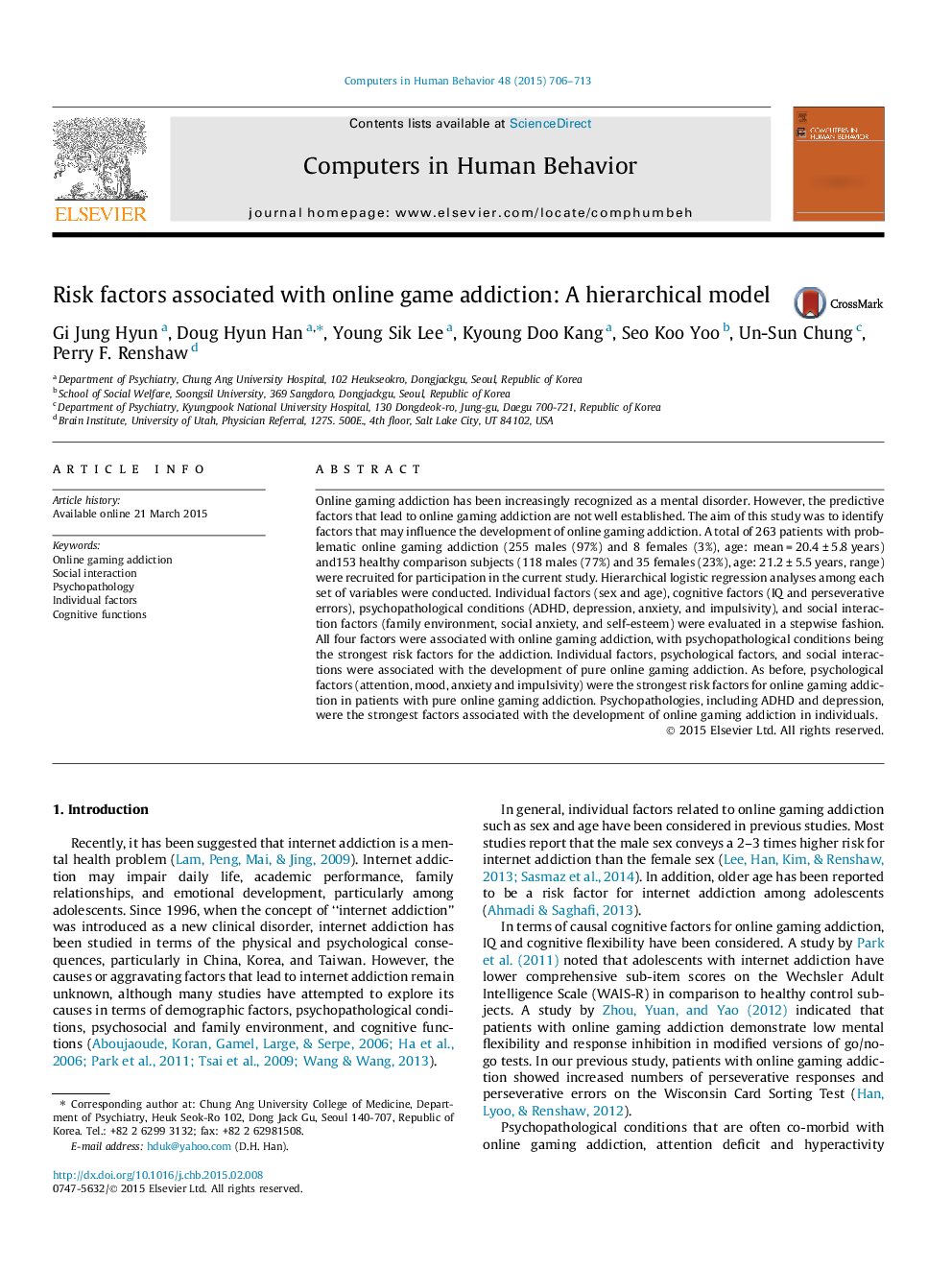| Article ID | Journal | Published Year | Pages | File Type |
|---|---|---|---|---|
| 6838481 | Computers in Human Behavior | 2015 | 8 Pages |
Abstract
Online gaming addiction has been increasingly recognized as a mental disorder. However, the predictive factors that lead to online gaming addiction are not well established. The aim of this study was to identify factors that may influence the development of online gaming addiction. A total of 263 patients with problematic online gaming addiction (255 males (97%) and 8 females (3%), age: mean = 20.4 ± 5.8 years) and153 healthy comparison subjects (118 males (77%) and 35 females (23%), age: 21.2 ± 5.5 years, range) were recruited for participation in the current study. Hierarchical logistic regression analyses among each set of variables were conducted. Individual factors (sex and age), cognitive factors (IQ and perseverative errors), psychopathological conditions (ADHD, depression, anxiety, and impulsivity), and social interaction factors (family environment, social anxiety, and self-esteem) were evaluated in a stepwise fashion. All four factors were associated with online gaming addiction, with psychopathological conditions being the strongest risk factors for the addiction. Individual factors, psychological factors, and social interactions were associated with the development of pure online gaming addiction. As before, psychological factors (attention, mood, anxiety and impulsivity) were the strongest risk factors for online gaming addiction in patients with pure online gaming addiction. Psychopathologies, including ADHD and depression, were the strongest factors associated with the development of online gaming addiction in individuals.
Keywords
Related Topics
Physical Sciences and Engineering
Computer Science
Computer Science Applications
Authors
Gi Jung Hyun, Doug Hyun Han, Young Sik Lee, Kyoung Doo Kang, Seo Koo Yoo, Un-Sun Chung, Perry F. Renshaw,
